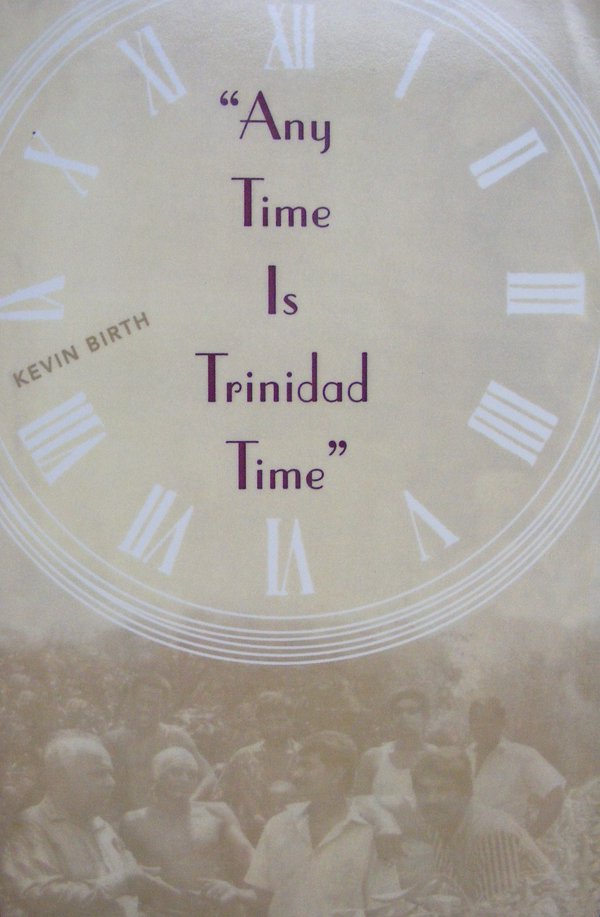A multiplicity of times
This post was written by David Rooney
David Thompson’s post about Metamec ‘time savings’ clocks excited me, because I am interested in the wider cultural meanings around seemingly innocuous phrases such as ‘time is money’.
A few years ago, I wrote an article on the subject for the Science Museum’s ‘Ingenious’ website. It looked at the history of Benjamin Franklin’s 1748 phrase and how its meanings in different times and places varied.
Reading the article back, I have been reminded of a fascinating book by anthropologist Kevin Birth called Any Time is Trinidad Time (University Press of Florida, 1999).

Here’s what I wrote for the Science Museum:
'Trinidad, a Caribbean island between Venezuela and the USA, has a rich history of settlement and immigration. It is ethnically and culturally highly diverse, with residents of mainly Black and Indian origin mixing with Spanish, French and English colonial culture.
'Social anthropologist Kevin Birth spent time living there in 1989 in order to study cultures of timekeeping. Starting out with the often-used phrase "any time is Trinidad time", originally attributed to calypso singer Lord Kitchener, Birth explored the ways people come together with differing notions of timekeeping, and how conflicts are managed.
'He also looked at phrases like "time is money", "time management" and "budgeting time" and found that their use and meaning is highly complex and culture-specific. Generalisations were impossible.
'We all carry around with us a great variety of "personal times" – value systems linking time with activity – and we deploy them in highly complex ways according to culture, context and circumstances. Phrases like the Lord Kitchener lyric are complex devices used to oil the wheels of societies under time pressure.'
If you’re interested in how different societies use clocks, I can heartily recommend reading Birth’s book.